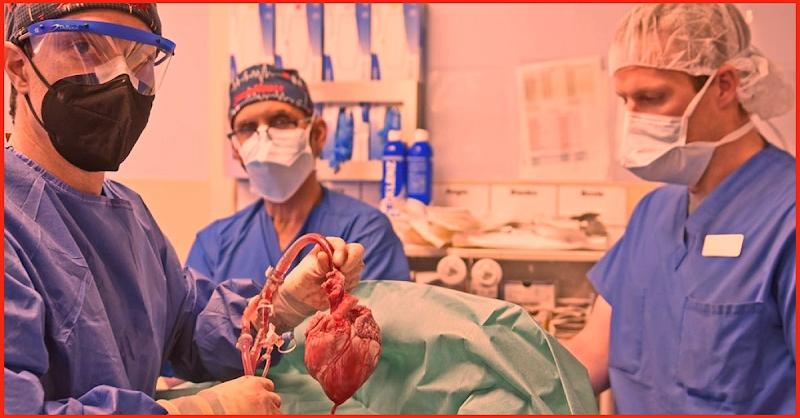Are you curious to know what is BSc MLT? You have come to the right place as I am going to tell you everything about BSc MLT in a very simple explanation. Without further discussion let’s begin to know what is BSc MLT?
BSc MLT, or Bachelor of Science in Medical Laboratory Technology, is a dynamic and crucial program that plays a pivotal role in the healthcare industry. This comprehensive guide will delve into the specifics of the BSc MLT course, covering its full form, eligibility criteria, course details, and potential career prospects.
What Is BSc MLT?
BSc MLT stands for Bachelor of Science in Medical Laboratory Technology. It is an undergraduate program that focuses on training students in various laboratory techniques and procedures essential for diagnostic purposes in the field of healthcare.
What Is BSc MLT Full Form?
The full form of BSc MLT is Bachelor of Science in Medical Laboratory Technology. This academic program provides students with in-depth knowledge and practical skills related to laboratory testing, analysis, and diagnostic procedures.
What Is The Qualification For BSc MLT?
To pursue a BSc MLT, candidates typically need to meet the following qualifications:
- Educational Qualification: Successful completion of the 10+2 level with a science background (Physics, Chemistry, and Biology) from a recognized board.
- Minimum Marks: Most institutions require a minimum aggregate score, often varying between 45% to 50%.
What Is BSc MLT Eligibility?
The eligibility criteria for BSc MLT include:
- Successful completion of the 10+2 level with the specified science subjects.
- Meeting the minimum aggregate marks required by the respective institution.
- Clearing any entrance exams or interviews if mandated by the institution.
BSc MLT Course Details:
The BSc MLT program is designed to provide students with comprehensive knowledge and practical skills in the field of medical laboratory technology. The course typically includes the following subjects:
- Anatomy and Physiology: Understanding the human body’s structure and functions.
- Biochemistry: Studying the chemical processes within living organisms.
- Microbiology: Exploring microorganisms and their impact on health.
- Hematology: Focusing on the study of blood and related disorders.
- Pathology: Understanding the nature and causes of diseases.
- Clinical Biochemistry: Analyzing chemical components in bodily fluids.
- Immunology: Studying the immune system and its responses.
- Diagnostic Microbiology: Learning techniques for identifying microorganisms.
- Clinical Microscopy: Analyzing microscopic components in clinical specimens.
BSc MLT Course Fees:
The course fees for BSc MLT vary among institutions and can be influenced by factors such as the reputation of the college, infrastructure, and additional facilities provided. On average, BSc MLT course fees range from moderate to slightly higher, depending on the institution.
BSc MLT Salary:
The salary of a BSc MLT graduate depends on various factors, including the job role, experience, and the geographic location of employment. Entry-level positions may start with a moderate salary, but with experience and expertise, professionals can witness significant salary increments.
BSc MLT Salary Per Month:
The monthly salary for BSc MLT professionals can vary widely. Entry-level positions may offer salaries ranging from ₹20,000 to ₹30,000 per month. With experience and specialization, professionals can earn higher salaries, often exceeding ₹50,000 per month.
BSc MLT Course Colleges:
Several reputable colleges and universities offer the BSc MLT program. Some well-known institutions include:
- All India Institute of Medical Sciences (AIIMS), New Delhi
- Christian Medical College (CMC), Vellore
- Manipal University, Manipal
- Amity University, Noida
- Jawaharlal Institute of Postgraduate Medical Education and Research (JIPMER), Puducherry
Conclusion:
In conclusion, BSc MLT opens doors to a rewarding career in medical laboratory technology, where professionals play a crucial role in disease diagnosis and healthcare management. The comprehensive curriculum, coupled with practical training, equips graduates with the skills needed to excel in various roles within the healthcare industry. As the demand for skilled laboratory technologists continues to rise, pursuing BSc MLT offers a promising pathway for those aspiring to contribute to the vital field of diagnostic medicine.
FAQ
Does B.Sc MLT Have Scope?
Upon completion of B.Sc. Medical Laboratory Technology (MLT), a person can find employment opportunities in various educational institutes, private, and government hospitals. After gaining substantial experience a person can run his/her own laboratory consultancy services, health care centers.
Does B.Sc MLT Require Neet?
Is NEET 2022 required for BSc MLT course after 12th? No, NEET 2022 entrance exam is not mandatory to get admission in BSc medical lab technician course. The aspirants have followed the admission process of their respective states. BSc MLT is a three-year course specialised in Medical Lab Technology.
What Are The Benefits Of B.Sc MLT?
Career growth potential – The career potential of Medical lab technicians in India is high. People are pursuing a B.sc MLT Course because they can progress to senior positions such as Laboratory Manager or Head of Department. They can also move into research or teaching positions.
Is B.Sc MLT Hard To Study?
Both B.Sc Nursing and B.Sc MLT are professional courses that require a lot of hard work and dedication. However, the difficulty level of the courses depends on your interest and aptitude.
I Have Covered All The Following Queries And Topics In The Above Article
What Is BSc MLT Course
What Is The Qualification For BSc MLT
What Is The Salary Of BSc MLT
What Is BSc MLT Full Form
BSc MLT Salary
What Is BSc MLT In India
What Is BSc MLT Eligibility
What Is BSc MLT Course
What Is BSc MLT Colleges
BSc MLT Course Details
BSc MLT Course Fees
BSc MLT Salary Per Month
What Is BSc MLT



